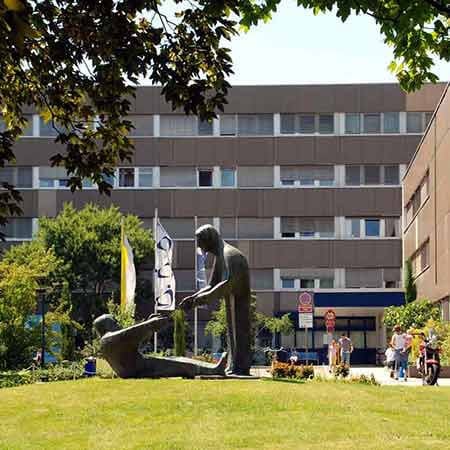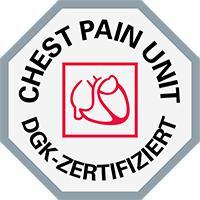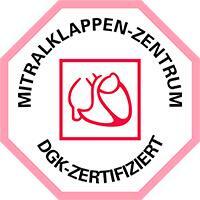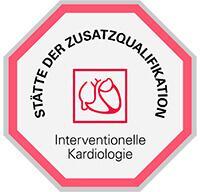The term "angina pectoris" combines various types of painful manifestations in the heart area, occurring mainly during intense physical activity. It is usually a sign of myocardial ischemia, which manifests itself for 15 – 20 minutes and disappears when taking nitroglycerin. Symptoms may be simultaneous or sporadic, making initial diagnosis difficult. If the first alarming signs arise, it is important to seek medical attention immediately, because angina pectoris is a sure precursor of serious abnormalities in the heart functioning.
Content
- About angina pectoris
- Risk factors overview
- Manifestation of angina pectoris
- Treatment options
- Coronary artery bypass surgery for angina pectoris
- Rehabilitation
- Hospitals for treatment of angina pectoris abroad
- The cost of treatment of angina pectoris abroad
- How to start treatment abroad?
About angina pectoris
Angina pectoris, in the form of sudden chest pain caused by an acute lack of blood supply to the myocardium, is a clinical form of coronary heart disease.
In most cases, angina pectoris is caused by coronary artery disease, and the early stage of the latter limits the lumen dilation of the artery and causes an acute shortage of blood supply to the myocardium, especially in periods of physical or emotional stress.
The most common conditions that provoke angina to manifest are walking, and less obvious physical activity (pain at an acceleration of movement when climbing, at a sharp headwind, when walking after eating or while carrying weight), and/or significant emotional stress. The conditionality of pain manifests itself in the fact that when physical effort continues or increases, the intensity of pain also increases inexorably, and when it ceases, the pain subsides or disappears within a few minutes after a heart attack.
Risk factors overview
Angina pectoris and diseases that cause it requires not only the quickest possible treatment, but also having awareness regarding the risk factors for heart attack development.
Most patients with angina pectoris suffer from hyperlipidemia (a lipid metabolism disorder, including cholesterol and triglycerides). Therefore, reducing cholesterol levels in the body is linked to a reduction in the number of attacks.
Obesity is also a risk factor for developing angina pectoris. It is often caused by a stable irrational diet (consumption of food high in saturated fats and high in animal fats, foods that contain refined sugar, processed vegetable oils, and artificial coloring) or metabolic disorders. In addition, excess body fat increases the strain on the heart, and the risk of heart attack increases accordingly. To control this factor, it is necessary to adhere to the principles of a rational or therapeutic diet, which include limiting the consumption of animal fats, processed and salty foods, and exploring the possibility of food sensitivities. However, it should be noted that in many cases excess body weight is a manifestation of serious imbalances in the body and needs to be addressed, instead of turning to severe food restriction that brings little to no good.
The lack of physical activity and the presence of decreased muscle strength, combined with an irrational diet, contributes to the risk of obesity and cholesterol accumulation. Together, these factors contribute to the development and frequent occurrence of angina.
Arterial hypertension is a frequent companion of coronary heart disease, which itself implies myocardial oxygen deficiency. When high blood pressure is present, the myocardium becomes strained, which leads to an even greater need for oxygen in the heart. This provokes a heart attack. Blood pressure control can help keep the heart and blood vessels healthy, reducing the frequency and severity of angina manifestations.
Smoking contributes to several risk factors at once: it causes oxygen deprivation, raises blood pressure, and causes arterial spasms. The habit harms a healthy body, and the presence of atherosclerosis leads to early manifestations of angina and significantly increases the risk of a heart attack.
Anemia is not a risk factor, but a condition that aggravates the course of the disease and makes it difficult to control angina. It is characterized by low hemoglobin levels and general weakening of the body, hence the inability to sufficiently supply oxygen to the heart. Controlling the normal level of hemoglobin helps to alleviate the disease.
The combination of two or more factors mentioned above, even slightly expressed, increases the oxygen starvation of the heart and, correspondingly, the risk of development and severity of symptoms of heart attack. The presence of risk factors should be taken into account when determining treatment tactics and secondary prevention of angina.
Manifestation of angina pectoris
The picture of typical angina pectoris is very vivid. Its signs are:
- Pain (most often behind the sternum or in the heart area).
- Irradiation of pain into the left shoulder or arm.
- The occurrence of pain during or immediately after physical activity or in a highly emotional state.
- Rapid cessation of pain at rest and after taking nitroglycerin.
At first, the pain usually occurs during physical activity, as a rule, during fast walking, when the heart's need for oxygen increases and the narrowed coronary arteries cannot dilate enough to provide adequate blood flow to the heart muscle. Cessation of physical activity leads to a decrease in the heart's oxygen requirement, rebalancing the requirement-delivery ratio, and the pain goes away. With severe atherosclerosis of the coronary arteries, when there is a sharp narrowing of their lumen, attacks of angina pectoris may occur at rest, with a slight increase in the oxygen demand of the heart, for example, after a meal, emotional excitement, and sometimes for no apparent reason (resting angina).
Treatment options
There are several options for angina pectoris treatment, among which the main are non-drug treatment, drug therapy, and surgical treatment.
Non-drug therapy of angina implies the elimination of risk factors in the mild forms of the condition. For example, the patient should give up smoking and normalize the cause of weight gain, and in general, learn how to stabilize different health conditions that may be present, for example, an autoimmune disease. Regular physical exercises are also a mandatory component of non-drug therapy. They stimulate the development and restoration of the vascular network in the heart and increase the general endurance of the body.
Regarding drug therapy, medication is selected individually for each patient. Generally, antiplatelet or antianginal agents are used; correction of metabolic disorders and blood composition disorders through medications is also held.
Pain syndrome in angina pectoris is caused by a mismatch of blood flow through heart vessels to its needs. Therefore, there are the following ways to prevent pain:
- Eliminating the blood clots in the vessels that feed the heart muscle.
- Increasing the blood flow through the coronary heart vessels.
- Reducing the heart muscle's need for oxygen intake, minimizing manifestations of heart failure and the occurrence of pain episodes.
The choice of therapy is determined by the chosen approach to treatment.
For patients suffering from angina, surgery is quite common. The most effective surgical methods of treatment include balloon dilatation of coronary arteries and coronary bypass surgery.
Coronary artery bypass grafting is a technique that helps to create a pathway for the blood flow in the conditions of the narrowing arteries.
Coronary balloon dilatation is a less traumatic operation in its essence. During the procedure, a special catheter with a balloon at its end is inserted directly into the area of the coronary artery narrowing. The inflated balloon begins to flatten the plaque, due to which the artery's lumen has narrowed. In addition, today it is possible to implant a stent that would eliminate the risk of repeated narrowing of the coronary artery into the vessel lumen.
Balloon dilatation is possible only if up-to-date equipment is available at the local hospitals. The procedure is indicated for patients who have had angina pectoris for no more than two years, provided that the prescribed drug treatment has not shown the desired result. The effect after surgery lasts from seven months to three years or more.
Coronary artery bypass surgery for angina pectoris
General anesthesia is usually used during coronary bypass surgery. In cases when it is necessary to perform a surgical intervention on a beating heart, anesthesiologists perform high epidural anesthesia.
Coronary bypass surgery is a complex surgical intervention during which a cardiac surgeon performs a cardiac arrest, opens the pericardium, and uses a heart-lung machine. During the operation, the donor vessels are also taken from the patient's own veins, which are needed to create a bypass shunt (past the place of coronary vessel occlusion). As a rule, another cardiac surgical team takes care of this stage of the procedure.
After the bypass shunt is created, the operating surgeon switches off the heart-lung machine, sews up the pericardium, and starts the heart.
Despite the complexity of the surgical intervention to restore normal coronary artery patency, the treatment results in hospitals abroad are very good. In most patients with angina pectoris, shortness of breath and other signs of coronary heart disease completely disappear. With timely surgical treatment, heart attack and sudden coronary death can be avoided in most cases. Quite often, a positive result of surgery depends specifically on the well-coordinated work of a medical staff. The highly qualified specialists working at hospitals abroad treat their job very seriously and take care of a comfortable stay of patients in their hospitals.
Rehabilitation
After the coronary bypass surgery and any other surgical treatment for angina pectoris, rehabilitation is the second most important thing, which the patient's further health state depends on. Full recovery after cardiac bypass surgery takes about 2 – 6 months.
The first couple of days after surgery, the patient is in the intensive care unit. Then he is transferred to a regular ward, where he stays for some time.
After cardiac bypass surgery, rehabilitation includes stabilization of the body, care of the postoperative wounds, and necessary medications.
Particular attention is paid to physical activity. In the first days, rest is recommended, but then a gradual increase of motor activity is beneficial. It should be noted that in the postoperative period of no longer than the first two months sports are not recommended. However, patients are advised to avoid sitting a lot, do gentle exercises, and use modified movement as a way to get back to normal sooner.
After coronary bypass surgery, rehabilitation necessarily includes the correction of diet. The diet involves the elimination of products containing saturated fats, increasing the vegetable and fruit intake in the diet, and adding products rich in vitamins and minerals.
Hospitals for treatment of angina pectoris abroad
The doctors working at reputable hospitals abroad use safe and sparing surgical techniques, including minimally invasive ones, which allow patients to get rid of pain quickly and recover faster. The surgeons working in hospitals abroad are experienced enough to perform cardiac surgeries on a beating heart so that the postoperative period and rehabilitation would be noticeably shorter and easier. Besides, the doctors usually work in close cooperation with one another to achieve good results in even the most complex cases.
The best hospitals for angina pectoris treatment abroad are:
- University Hospital Ulm, Germany.
- Charite University Hospital Berlin, Germany.
- University Hospital Heidelberg, Germany.
- University Hospital RWTH Aachen, Germany.
- University Hospital Jena, Germany.
More information about the mentioned hospitals, their departments of cardiology, and the conditions of the stay can be found on the Booking Health website.
The cost of treatment of angina pectoris abroad
The price of treatment for angina pectoris in departments of cardiac surgery abroad is based on the prices for diagnosis and treatment of a specific patient. That is why you can find out the exact cost of treatment at the hospital only after undergoing diagnostics, based on the result of which you will be prescribed a specific therapy regimen. Even though the precise estimate is difficult to name, the average prices of treatment with different methods can help you navigate your financial abilities.
On average, the cost of treatment is as follows:
- The cost of treatment with conservative methods starts from 1,009 EUR.
- The cost of treatment with cardiac catheterization and coronary bypass surgery starts from 8,998 EUR.
- The cost of treatment with coronary bypass surgery starts from 9,069 EUR.
- The price of cardiac rehabilitation starts from 566 EUR.
You can get more information about the cost of treatment in different countries on the Booking Health website.
How to start treatment abroad?
The idea of treatment abroad seems overwhelming, but getting help with the organization process makes it so much easier.
Booking Health takes care of organizing every part of your treatment abroad, starting from negotiation with the hospital you choose to providing you with a personal interpreter upon your arrival. But probably the most important part is that you will have support throughout your whole treatment journey.
If you want to learn more about how it all works, please leave your request on the Booking Health website for a medical advisor to contact you.
Authors: Dr. Nadezhda Ivanisova, Dr. Sergey Pashchenko


















